- News
- Reviews
- Bikes
- Accessories
- Accessories - misc
- Computer mounts
- Bags
- Bar ends
- Bike bags & cases
- Bottle cages
- Bottles
- Cameras
- Car racks
- Child seats
- Computers
- Glasses
- GPS units
- Helmets
- Lights - front
- Lights - rear
- Lights - sets
- Locks
- Mirrors
- Mudguards
- Racks
- Pumps & CO2 inflators
- Puncture kits
- Reflectives
- Smart watches
- Stands and racks
- Trailers
- Clothing
- Components
- Bar tape & grips
- Bottom brackets
- Brake & gear cables
- Brake & STI levers
- Brake pads & spares
- Brakes
- Cassettes & freewheels
- Chains
- Chainsets & chainrings
- Derailleurs - front
- Derailleurs - rear
- Forks
- Gear levers & shifters
- Groupsets
- Handlebars & extensions
- Headsets
- Hubs
- Inner tubes
- Pedals
- Quick releases & skewers
- Saddles
- Seatposts
- Stems
- Wheels
- Tyres
- Health, fitness and nutrition
- Tools and workshop
- Miscellaneous
- Cross country mountain bikes
- Tubeless valves
- Buyers Guides
- Features
- Forum
- Recommends
- Podcast
£2,929.00
VERDICT:
Fast, pretty comfortable and great features for year-round riding
Weight:
8,278g
Contact:
At road.cc every product is thoroughly tested for as long as it takes to get a proper insight into how well it works. Our reviewers are experienced cyclists that we trust to be objective. While we strive to ensure that opinions expressed are backed up by facts, reviews are by their nature an informed opinion, not a definitive verdict. We don't intentionally try to break anything (except locks) but we do try to look for weak points in any design. The overall score is not just an average of the other scores: it reflects both a product's function and value – with value determined by how a product compares with items of similar spec, quality, and price.
What the road.cc scores meanGood scores are more common than bad, because fortunately good products are more common than bad.
- Exceptional
- Excellent
- Very Good
- Good
- Quite good
- Average
- Not so good
- Poor
- Bad
- Appalling
Ribble's Endurance SL Disc is one bike that I'd happily ride and race all year round. It handles well, remains composed over broken tarmac, climbs quickly, and can hold its speed on the flat too. The customisable spec makes this an easy bike to get right for your riding aims and budget.
- Pros: Bike Builder; same frame features as the SL R; fast yet comfortable
- Cons: Quite aggressive for 'endurance'; weight penalty over R version
Ride
Considering the cost-saving over the Endurance SL R range, I was expecting more of a performance loss from the SL. It's simply not the case. This is a fast road bike that is pretty well suited to tackling long miles and challenging routes.
As David found when he reviewed the Endurance SL R, this isn't your typical mile-eating sofa of a bike. The ride is smooth, but the geometry is aggressive. Ribble's aim was to make a race bike that would get you to the final climb or sprint to the line in the freshest shape possible. That's where the name comes from.
That aggressive geometry can be seen in how long and low the Endurance SL is. The geometry is identical to the SL R version, so the medium we've got here has a 541mm stack, 390mm reach, 997 wheelbase, 150mm head tube and a 72.5-degree head angle. It's squatter than Canyon's medium Ultimate CF SL Disc and just 1mm shorter in reach, though the slightly longer head tube suggests Ribble is going towards the comfort end of the race spectrum.
Enough numbers. The ride on my local lanes was a great mix of comfort and speed. Out on the flats just south of the Mendips, the Endurance SL was very composed over the broken tarmac. This isn't the nippiest bike that I've ever ridden, but when cruising through the lanes and pushing the pace on group rides, I was happy to lose a little speed out of slow corners in favour of the way this easily holds its speed above 20mph.
Trying to accelerate hard out of slower corners was the only time that I could feel a distinct difference between this and the SL R model that I also got a bit of time on, prior to testing the SL. I believe most of that was down to the wheelset difference – the SL R was rolling on stiffer and lighter Zipp 302 carbon wheels than the Mavic Ksyrium Elites on the SL. The Zipp 302s just felt nippier out of the corners. Once up to speed, though, with the stiffness around the bottom bracket and front end, combined with the surefooted nature of the bike, the SL was very responsive in a fast sprint.
Ribble's own D-shaped seatpost provides a lot of the comfort in the rear end and, working in conjunction with the dropped seatstays, gives ample comfort for long Sunday rides. For further comfort gains, there is space front and rear for going wider than the 28mm tyres fitted, though Ribble's recommended maximum width is 28mm.
I was equally happy to race this bike, take it on faster club runs and head out on general rides on it. The handling is a mix that will suit pretty much everything bar crit racing. It's just a bit on the stable side for the tight circuits, though push this through fast-flowing bends out of the road and that predictability is perfect for inspiring confidence.
Groupset
Shimano's Ultegra R8000 groupset is perfect if you're looking for the best balance of performance and money – a step up from 105 but not as expensive as Dura-Ace. The shifting is snappy and has remained accurate over the test period, and braking is fabulous. There's loads of power should you need it, but the modulation is the key factor. While riding in the rain, on slick roads, it was easy to feather the brakes and I never found issues with locking up.
The compact chainset and 11-30T cassette create a very easy climbing gear with enough speed on the flats for faster group rides.
The threaded bottom bracket is a sensible feature that I'm glad to see; these are generally more reliable than press-fit and then much easier to replace if they wear out. I've had pure, blissful silence from this one so far, and it's been through some really shoddy weather.
While the shifters are a nicer shape than the SRAM equivalent, they still feel a little large to me. Despite the chunky size, I liked using them. They provide a positive click when changing up and down the block.
If you're not too fussed about weight and looking to use this bike more for general riding than racing, I'd suggest saving a bit of money and going for 105. These days, the difference is mostly found in the weight figures and even that isn't huge.
Wheels/tyres
The Mavic Ksyrium Elite Disc hoops aren't the speediest wheels I've ever ridden, but they support the 28mm Continental GP5000 tyres well and the pairing offers good comfort on broken roads. If you were doing a bit more racing, a wheel upgrade to Ribble's carbon Level 40DB wheels would be a good use of £250.
That said, for the general riding, group rides and sportives that I did on this bike, the low-profile rims on the Ksyriums were a great option given how windy it has been lately.
Finishing kit
The Level 3 Aero bar is a comfortable option that feels great in the hands. The 125mm reach and 80mm drop make the drops very accessible and I was happy to spend long periods of my ride here, especially when trying to hide from a headwind. The carbon construction seems to offer a good mix of stiffness and comfort, though I'd say it leans towards the former: hard efforts out of the saddle brought no discernible flex, whether on the hoods or in the drops.
While the aero top section might be marginally faster if not wrapped in tape, most of us will see more of a benefit from resting hands on the tops while climbing and cruising on the flats. I would be quick to change out the tape. It's a standard cork tape and I much prefer the grip and padding from Lizard Skins DSP.
The Level carbon stem is an upgrade that I could live without. It's a carbon-wrapped alloy stem that works without fuss and feels fine, being stiff enough without being harsh, but the 10g weight saving isn't enough to persuade me to part with an extra £50; I'd be more inclined to save for the integrated bar/stem. If you could stretch to the £280 for that then I'd suggest going for it. It allows you to hide all of the cabling, mechanical, hydraulic and electronic, inside the frame for the cable's entire length. It's an upgrade that really adds impressive aesthetics and also a slight aero advantage.
Ribble's seatpost offers a decent platform for your saddle. The D-shape design is meant to be a little bit aero while also being a little forgiving. Over broken tarmac, I was impressed by the lack of road buzz coming through the saddle, though comfort at the rear end is a combination of tyre size/pressure, wheels, seatstays, seatpost and saddle. All that I can say here is that I had no issues with slipping or harshness.
Frame
Ribble has used a full EPS construction method for the frame. It's a pretty standard method these days, where the T800 and T1000 carbon is laid up around a mould. The frame is then cured using high temperatures before the mould is removed. This is designed to leave a smooth internal finish with no excess material. From what I can see around the seat tube, headset and bottom bracket openings, the manufacturer has created a tidily finished frameset.
To keep costs down over the SL R, Ribble has used more T800 carbon, a lower grade than the T1000. This, combined with a threaded aluminium BB insert, increases the weight by about 300g. For me, it doesn't detract from what is a great bike to ride. In fact, 300g is fine by me when the benefit is a threaded BB. Without boring you with tales of my press-fit BB woes, threaded bottom bracket units are much more simple to fit, generally, require less maintenance, and are much easier to swap out when they wear out.
The aero tube design creates forced flow separation for drag and weight reduction. Well, that's what Ribble claims. We have no way to verify that. The claim is '28.5% less drag than the R872' which, if true, is a big saving.
Away from aero data, things that I can verify are the touches that will mostly go unnoticed until they are needed. These are the considerations that make this a brilliant bike in my eyes, and the things that will make living with it very easy.
The first is the silence. I'm yet to hear any annoying rattles from inside the frame. For my sanity, peace and quiet here are essential. The cable routing is also easy to access, which should make maintenance easy.
The second is having cleverly hidden mudguard eyelets. Along with the detachable brake bridge on the seatstays, these make it possible to run full-length mudguards, turning this into a very nice winter bike when the weather gets nasty.
Value
The Endurance name is slightly misleading and I'd say that this would compare well to Canyon's Ultimate CF SL Disc 8.0. It, too, is an aero-optimised bike that climbs well. At £2,349, it is cheaper than the Ribble, but the Ultimate doesn't have the ability to hide all the cables internally like the Ribble does.
The Ribble is cheaper than the BMC Roadmachine 02 Two, though, at £3,300.
> Buyer's Guide: 10 of the best Shimano Ultegra-equipped road bikes
Value is slightly hard to judge here, given the ability for each rider to customise their build through Ribble's Bike Builder. The list of options is really extensive, including custom paint, your choice of wheels/tyres, and loads of other little bits. If buying from a British brand matters to you, then you can throw that into the mix too.
All in, I'd say that you're getting a very good bike for your money.
Conclusion
While the Ribble Endurance SL Disc is slightly heavier than the all-out race-spec SL R, I'd happily use it for everything from long winter miles right through to full-gas road races. The frame offers more speed than comfort, but this is still an easy bike to ride long miles on broken lanes and the small touches will make it easy to live with in the long run.
Verdict
Fast, pretty comfortable and great features for year-round riding
road.cc test report
Make and model: Ribble Endurance SL Disc
Size tested: Medium
About the bike
List the components used to build up the bike.
Frame: Ribble Endurance SL Disc
Groupset: Shimano Ultegra R8020. Mechanical shifting with hydraulic disc brakes.
Cassette size: 11-32T
Chainrings: 52/36
Crank length: 172.5
Rotor size: 140 F/R
Wheels: Mavic Ksyrium Elite Disc
Tyres: Continental GP 5000 TL 28mm
Bar: Level 3 Aero Carbon Bar 42cm
Stem: Level 3 Road Carbon Stem
Tape: Ribble Bar Tape
Seatpost: Ribble Carbon
Saddle: Prologo Kappa RS
Tell us what the bike is for and who it's aimed at. What do the manufacturers say about it? How does that compare to your own feelings about the bike?
From Ribble: "With its impeccable performance, versatility and a multitude of wheel, component and finishing kit options the Endurance SL and SL R Series can be fine-tuned for all riders of all levels of experience and ability.
"The serious racer whether Elite or local hero will appreciate the frames stiffness and power transfer. The built in aerodynamic tech, builds tipping the scales below the UCI weight limit and disc and caliper brake options mean the Endurance SL platform offers a performance advantage in all race situations.
"The Endurance rider will benefit from the race bike attributes designed into the frame and will also see gain from the comfort enhancing and fatigue reducing features ensuring that they can go further, higher and quicker whether all day Epic or Weekend Gran Fondo.
"Fitness and Leisure riders can experience the feeling you only get from a high end race bike but with the geometry and fit required to achieve a comfortable and efficient riding position. The platforms comfort, stability, handling and braking performance will inspire confidence making the Endurance SL the perfect partner as you develop your riding ability. Ride further, comfortably with less fatigue, make light work of hills, as you progress to experience longer rides over more challenging terrain."
Ribble is playing on its Bike Builder advantage of making this a bike for a huge range of riders. All you have to do is pick your components. You can easily build this into a speedy race bike, or spec it to be a faster endurance bike.
Where does this model sit in the range? Tell us briefly about the cheaper options and the more expensive options
With Ribble's Bike Builder, you can build a bike with Shimano 105 R7020 and Mavic Aksium Disc wheels for £1,799 or spec all the lightest bits to bring it up to around £6,000.
Frame and fork
Overall rating for frame and fork
8/10
Tell us about the build quality and finish of the frame and fork?
The build quality is good. The finish is very tidy with no errant bits of carbon inside.
Tell us about the materials used in the frame and fork?
A mix of Toray T800 and T1000 carbon.
Tell us about the geometry of the frame and fork?
It's a nice mix of length and height. I found that I could get nice and low, to adopt a powerful pedalling position over the bottom bracket.
How was the bike in terms of height and reach? How did it compare to other bikes of the same stated size?
Stack is 541mm, 16mm lower than the Canyon Ultimate CF SL 8.0 Disc. Reach is marginally shorter by 1mm at 390mm.
Riding the bike
Was the bike comfortable to ride? Tell us how you felt about the ride quality.
Certainly not a true endurance bike, but very comfortable for a road racer.
Did the bike feel stiff in the right places? Did any part of the bike feel too stiff or too flexible?
The front end and BB areas both felt plenty stiff enough without being too harsh.
How did the bike transfer power? Did it feel efficient?
Accelerations at speed were fine, but jumping out of slow corners felt a touch sluggish. That could easily just be the wheels.
Was there any toe-clip overlap with the front wheel? If so was it a problem?
No.
How would you describe the steering? Was it lively neutral or unresponsive? The steering was on the livelier side of neutral. Good for fast sweeping corners, but a little slow for tight crit courses.
Tell us some more about the handling. How did the bike feel overall? Did it do particular things well or badly?
Tacks really well in fast, flowing corners; less lively in tight bends.
Which components had the most effect (good or bad) on the bike's comfort? would you recommend any changes?
The 28mm tyres are probably the biggest factor here. I would also change the bar tape for a bit more cushioning.
Which components had the most effect (good or bad) on the bike's stiffness? would you recommend any changes?
I'd swap out the wheels if I was going to be using this more for racing.
Which components had the most effect (good or bad) on the bike's efficiency? would you recommend any changes?
Perversely, the hydraulic brakes were great for efficiency as I found myself braking late for corners and heading through corners with more speed.
Rate the bike for efficiency of power transfer:
7/10
Rate the bike for acceleration:
8/10
Rate the bike for sprinting:
9/10
One of the most stable bikes that I've had the pleasure of sprinting on.
Rate the bike for high speed stability:
8/10
I clocked 64mph on this.
Rate the bike for cruising speed stability:
8/10
It holds its speed very well.
Rate the bike for low speed stability:
6/10
Rate the bike for flat cornering:
7/10
Easy to track accurately.
Rate the bike for cornering on descents:
9/10
Really nice down flowing descents.
Rate the bike for climbing:
6/10
It climbs well.
The drivetrain
Rate the drivetrain for performance:
9/10
Rate the drivetrain for durability:
7/10
Rate the drivetrain for weight:
8/10
Rate the drivetrain for value:
7/10
Tell us some more about the drivetrain. Anything you particularly did or didn't like? Any components which didn't work well together?
Shimano Ultegra R8020. Snappy shifting and brilliant brakes. Not much to complain about here.
Wheels and tyres
Rate the wheels for performance:
6/10
Solid and comfortable, but a tad sluggish for racing.
Rate the wheels for durability:
8/10
Rate the wheels for weight:
6/10
Rate the wheels for comfort:
8/10
Rate the wheels for value:
7/10
Tell us some more about the wheels.Did they work well in the conditions you encountered? Would you change the wheels? If so what for?
For me, looking to do more racing, I'd be keen to go carbon. Ribble's Level 40 DB look like a good option.
Rate the tyres for performance:
7/10
Rate the tyres for durability:
6/10
Rate the tyres for weight:
7/10
Rate the tyres for comfort:
7/10
Rate the tyres for value:
7/10
Tell us some more about the tyres. Did they work well in the conditions you encountered? Would you change the tyres? If so what for?
Continental's GP5000 TL tyres had a lot of hype surrounding them when they were released. I can't say that I was blown away. I still prefer something with a higher thread count cotton sidewall. I'd look at Challenge's new tubeless handmade tyres.
Controls
Rate the controls for performance:
8/10
Rate the controls for durability:
8/10
Rate the controls for weight:
8/10
Rate the controls for comfort:
7/10
Rate the controls for value:
8/10
Tell us some more about the controls. Any particularly good or bad components? How would the controls work for larger or smaller riders?
The shifter bodies are the only thing I'd highlight. They still feel slightly large in the hands, which might be an issue for smaller riders.
Your summary
Did you enjoy riding the bike? Yes
Would you consider buying the bike? Yes, with a slightly changed spec.
Would you recommend the bike to a friend? Yes. Especially if they were looking for one bike to ride all year.
How does the price compare to that of similar bikes in the market, including ones recently tested on road.cc?
Hard to judge because of the customisable nature of the spec, but it seems to be slightly more expensive than Canyon's Ultimate SL Disc 8.0 (£2,349). It still offers better value than the BMC Roadmachine 02 Two (£3,300).
Rate the bike overall for performance:
8/10
Rate the bike overall for value:
6/10
Use this box to explain your overall score
The Endurance name is slightly misleading. It's more of a comfortable race bike than an endurance bike. But that makes it fast and fun to ride without the harshness usually associated with such bikes. Ribble's Bike Builder is a key highlight and allows you to build this up exactly as you'd like. That customisation does seem to add a little cost over its rivals, but I'd say that it's money well spent.
About the tester
Age: 24
I usually ride: Cannondale Supersix Di2 My best bike is:
I've been riding for: 5-10 years I ride: Most days I would class myself as: Expert
I regularly do the following types of riding: road racing, time trialling, cyclo-cross, commuting, club rides, general fitness riding, I specialise in the Cafe Ride!





































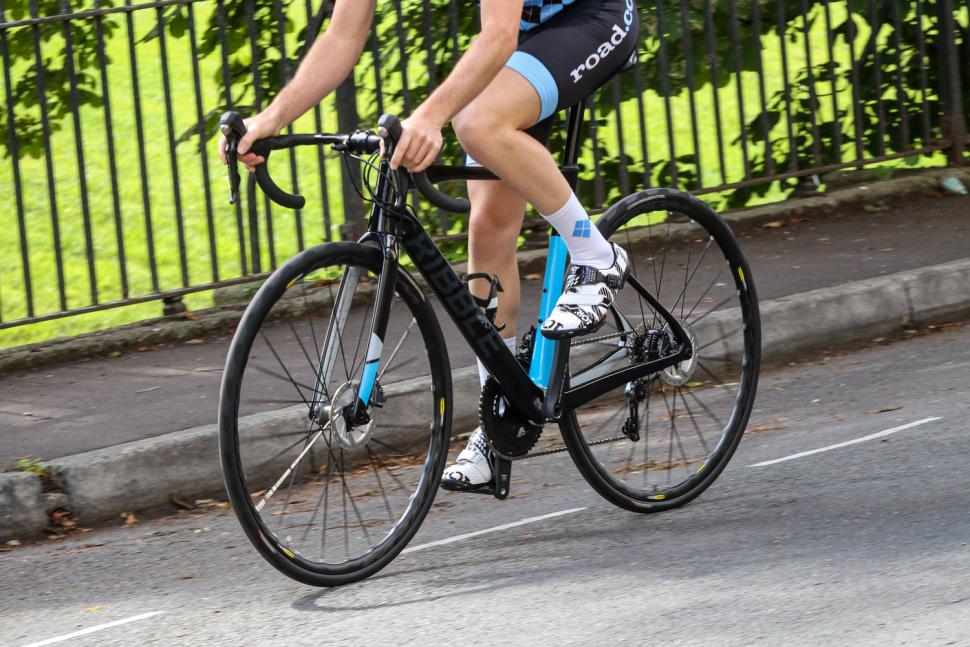
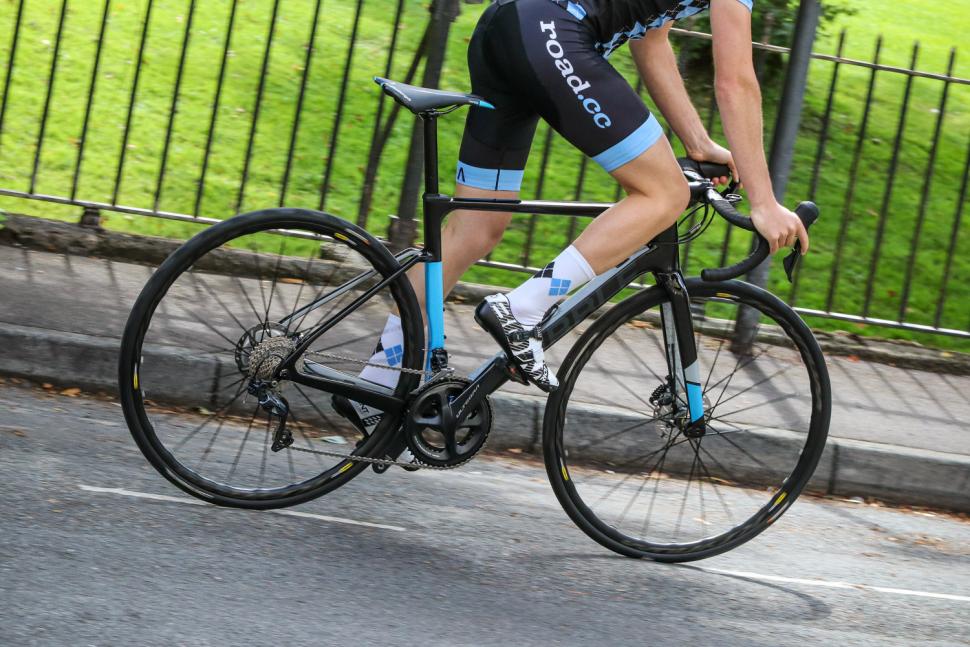
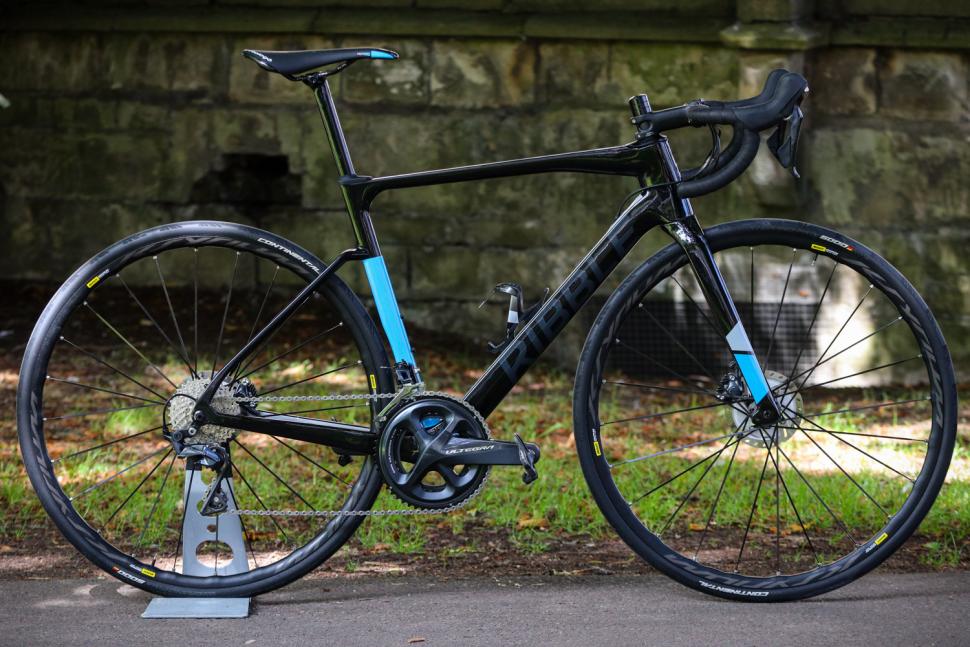
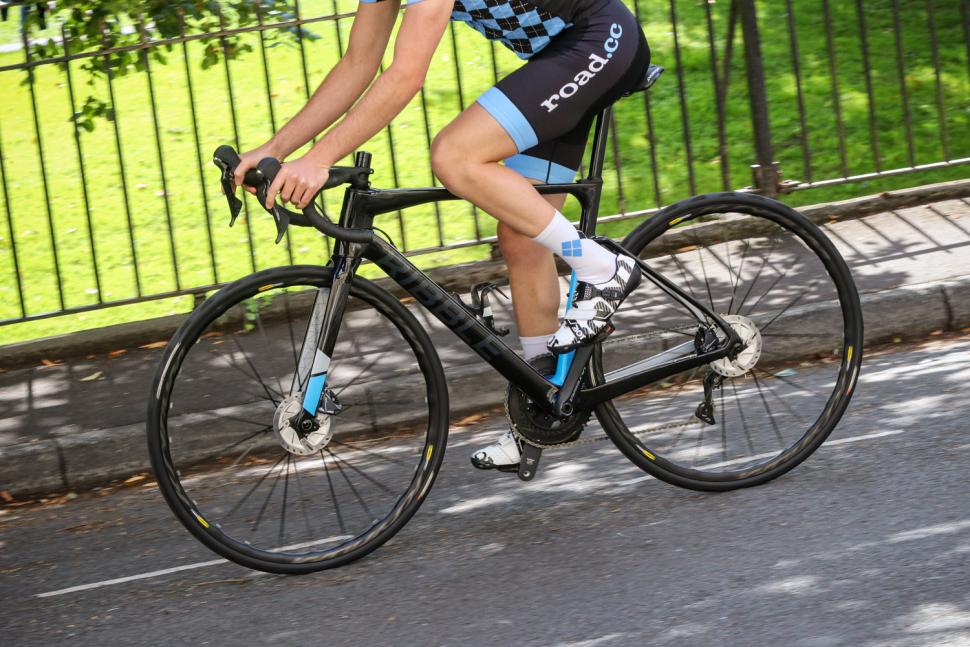
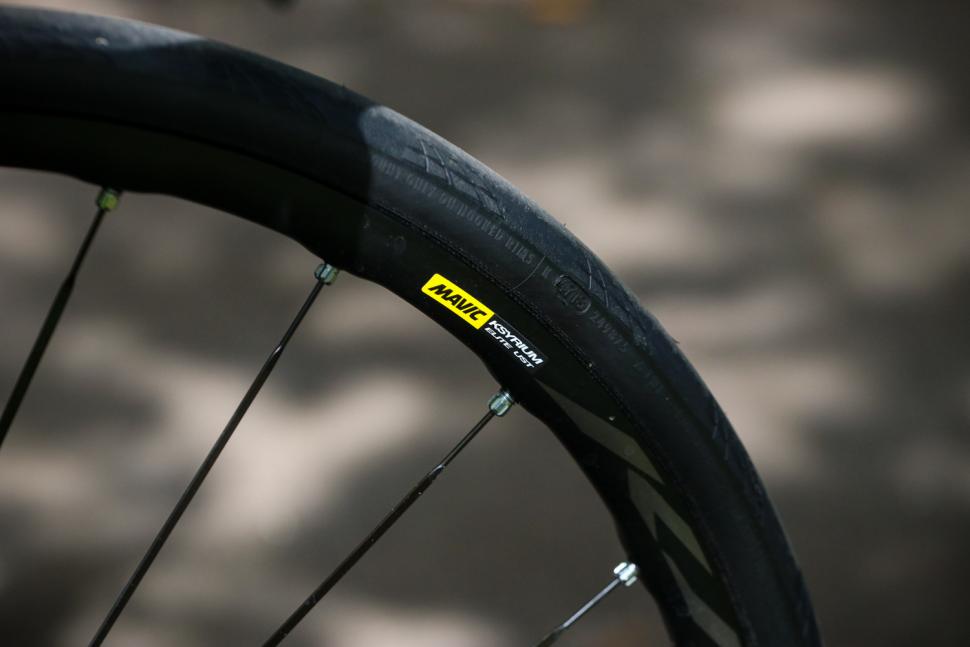
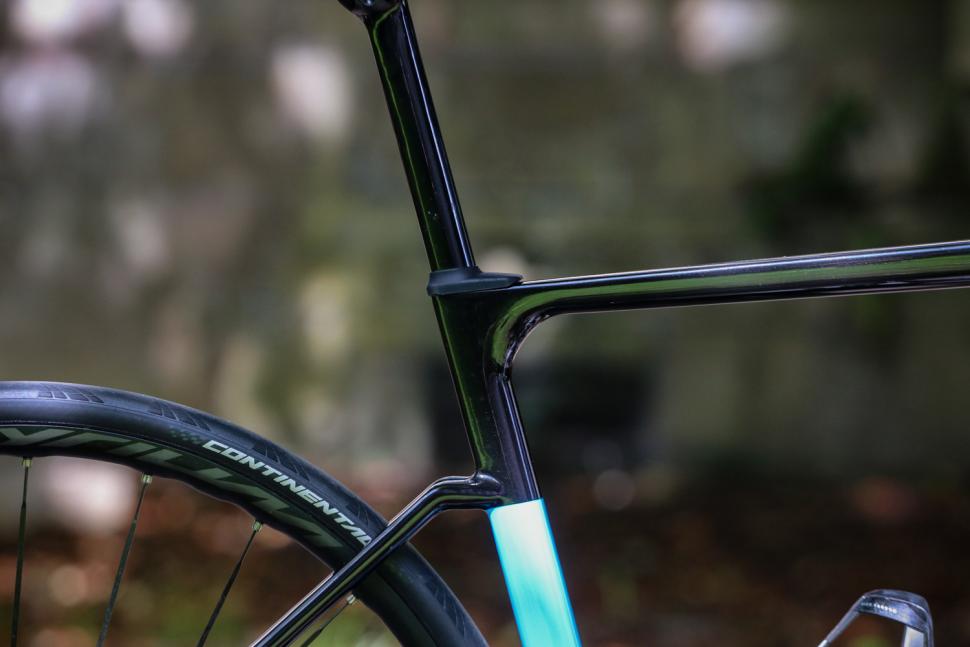
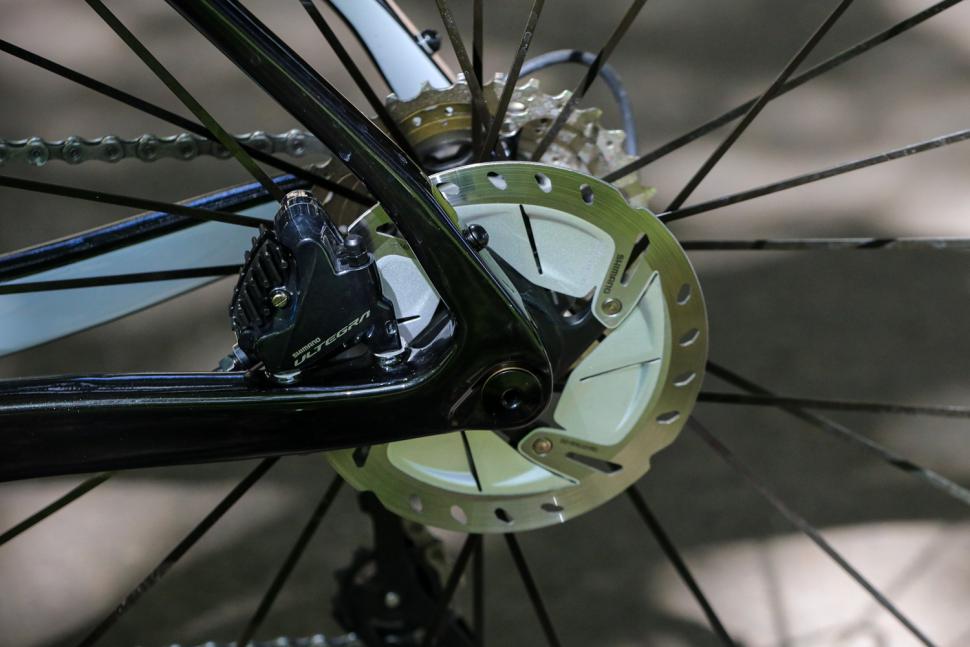
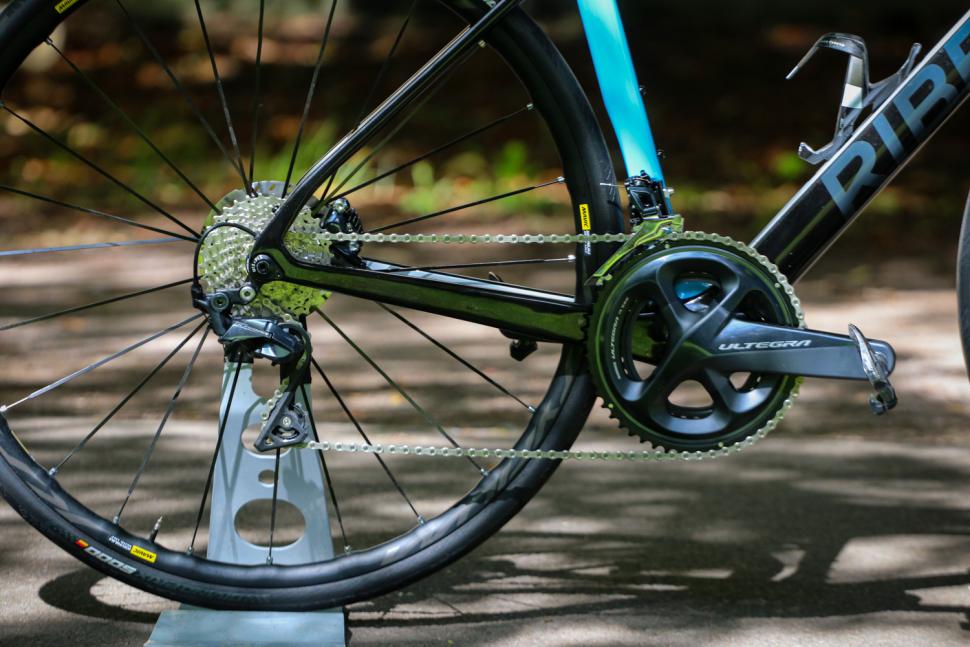


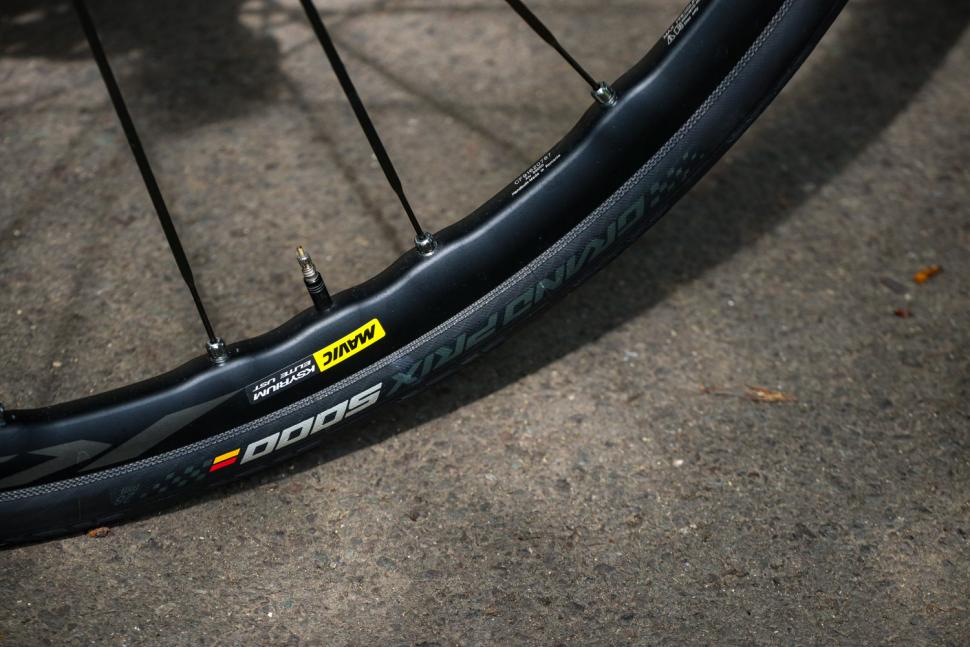


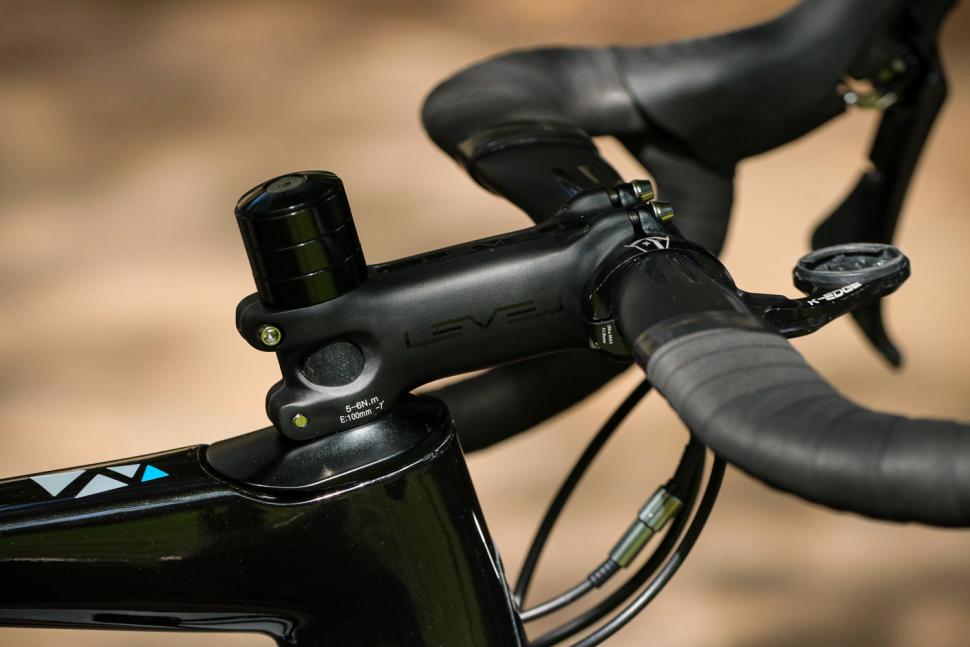
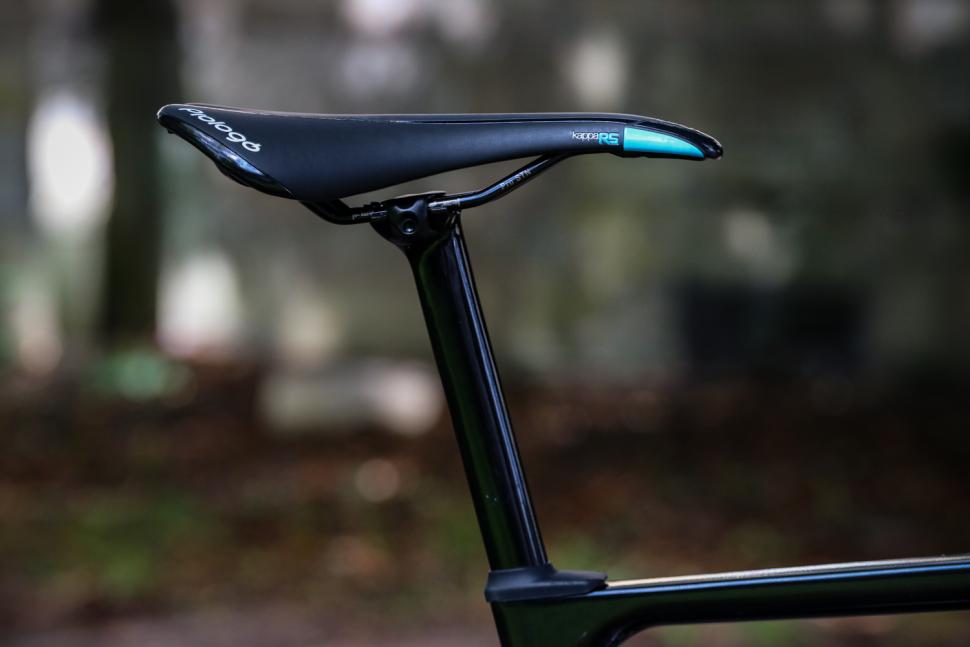
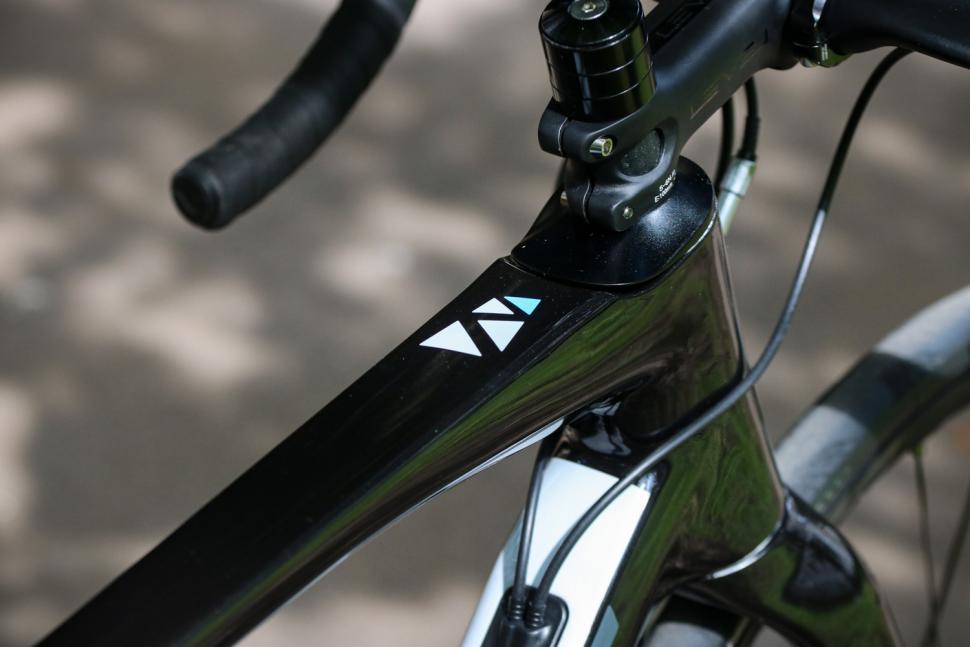


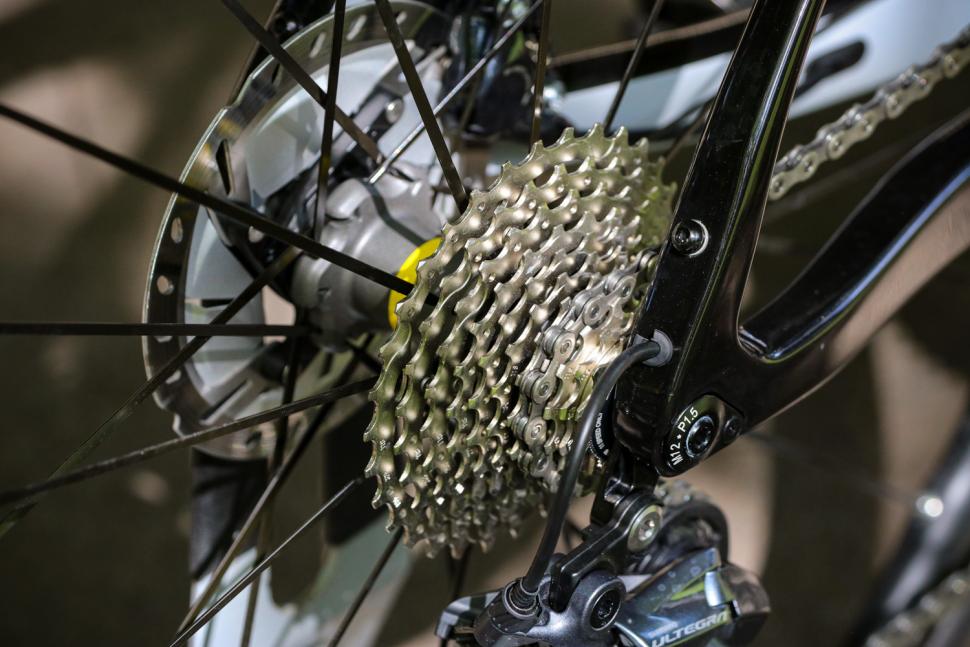

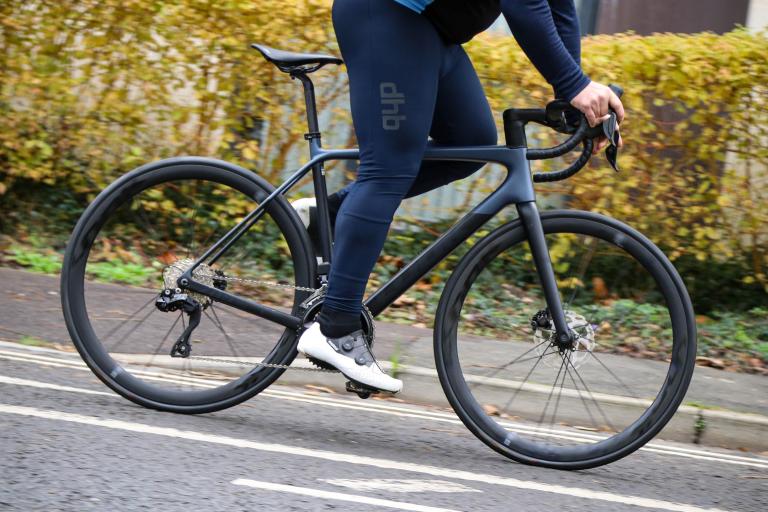
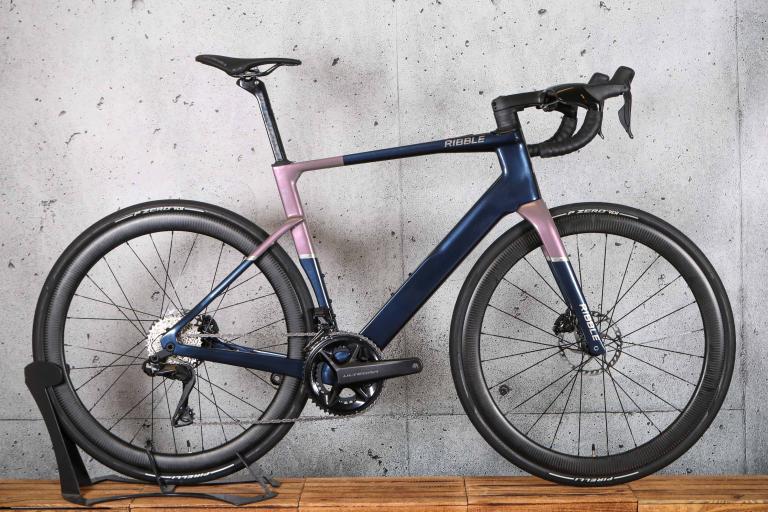
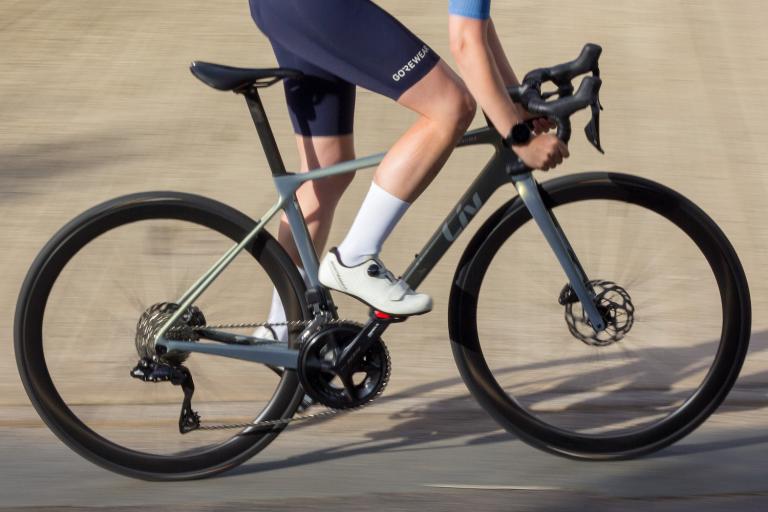
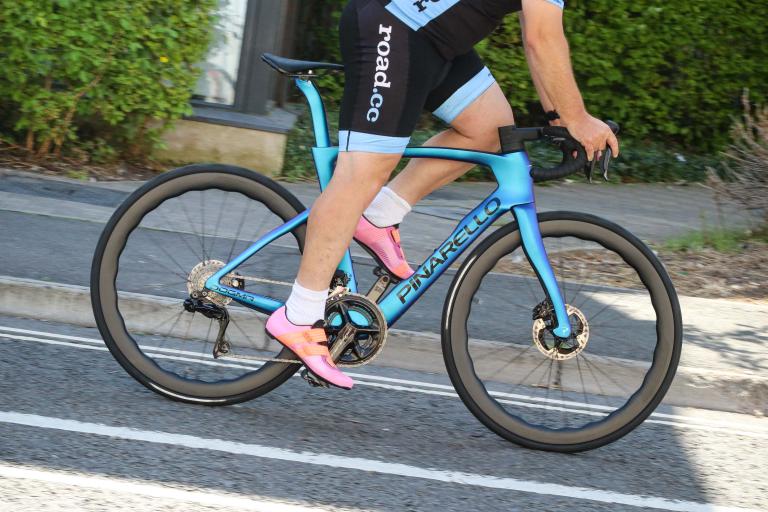
I am absolutely certain that it's not fair for trans-identifying males who went through male puberty to compete in female sports... and that should...
I was just excited to learn that Grundig were still a going concern, let alone making stuff for bikes now! What's next, Blaupunkt power meters?!
White shoes:...
Nothing to do with cycling, and currently unclear as to what exactly happened. But a child is dead, a tram line isn't running services and ...
Sidelining the point here a little bit, but I was just looking at a Rapha video about Lachlan Morton's latest incredible venture of riding 648km in...
Or, you can just look at them - it's pretty obvious when they're not going to work with a new chain. Then you can try them with old lengthened...
I bought 5 screw in storage hooks from local d.i.y store for £10. Does the same job 🤷♂️
Well it looks like they've got a page now. It says they'll accept video evidence but I haven't been through the whole process. Looks very similar...
Sorry, but the BBC is definitely tilting towards cycling after the Panorama debacle....
Unlikely. Not once he hears that it'll 'help Gore'.